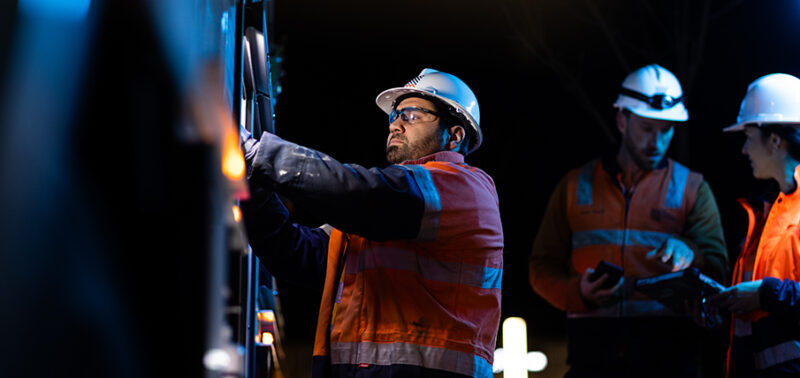The quarterly Australian Economic report card released by the Australian Bureau of Statistics (ABS) in June last year revealed what many Australian businesses had already been feeling, a downturn in consumer spending.
In short, the report revealed a modest 0.2% GDP growth amidst weak household spending, rising government expenditure, and a subdued household savings rate, resulting in a veritable shit storm of an economic environment for businesses to navigate.
Key statistics from the report:
- Our economy grew a modest 0.2 per cent in the June quarter 2024 and 1.5 per cent over the 2023-24 financial year. Over the year GDP per capita fell 1.0 per cent.
- Annual inflation increased, though annual underlying inflation continued to fall. The consumer price index rose 1.0 per cent in the June quarter and was up 3.8 per cent compared to June quarter 2023. Prices were higher for goods such as new dwellings, fuel, and fruit and vegetables.
- Household spending fell 0.2 per cent. We spent less on discretionary items, particularly for events and travel. Spending on food also fell 1.0 per cent as we looked to reduce our grocery bills.
- Our savings remained low. Households saved only 0.9 per cent of their income over the year. This was the lowest rate of annual saving since 2006-07. Net savings reduce when household income grows slower than household spending.
The financial year growth figures in their entirety showed a frugal 1.5% increase. Ignoring the atypical 2020-21 pandemic year – it was the worst result since the 1991 –92 recession recovery period.
With inflation pressures, falling export prices, and high interest rates dampening consumer and investment activities, it has become even more important for businesses to reimagine their models by looking outward instead of in. And the best way to do this is to engage market research, to better understand the pressure points and desires of your customers.
As discretionary spending declines while the population struggles to afford the base necessities like food, shelter and power, market research provides businesses with an insight into changing consumer behaviours. For instance, the ABS data shows household spending on transport services and groceries fell, while spending on household equipment rose due to sales incentives. Such insights can guide businesses in adjusting product offerings, pricing strategies, and marketing efforts to meet shifting demand patterns.
Market research can also help to understand global trends and external market influences to help businesses to adjust supply chains or target new markets.
Jason Dunstone, Founder of SA based market research agency Square Holes, says that market research is about illuminating new pathways forward and being able to boldly make the changes needed backed by solid data.
“For any business serious about elevating its offering and building a strong, trusted brand that is agile and able to move with the times, market research is a necessity. It’s our role to partner with you to provide consumer and cultural insights that can help you withstand any growing pains you may have,” says Dunstone.
Square Holes recently partnered with Jonny’s Popcorn Delights and Them Advertising agency to understand consumer attitudes, brand awareness and differentiation within the snack market focusing on popcorn.
Laura Harvey, Senior Account Manager at Them, says that market research goes hand in hand with building strong, engaging advertising campaigns.
“For a marketing agency, understanding the target audience’s preferences and pain points in today’s economy is crucial for creating effective strategies that support our clients, especially during challenging times,” says Harvey.
“Investing in market research allows us to grasp the complexities of the issues at hand and craft innovative marketing solutions that address the evolving needs of our clients’ markets.”
Ben Bugden at Jonny’s Popcorn Delights, says that the recent project has helped to clarify how the company can better connect with consumers on what makes Jonny’s popcorn the one to beat.
“I used to think of advertising as being synonymous with marketing, but I now know that knowledge about the market is the largest chunk of what marketing is. I’ve known for a while that we needed to have a better idea of what was going on with the market,” says Bugden.
“Recently I got some insight into how much more successful our competitors are than us, and I was very surprised by that because I know that our product is better. So that told me that I didn’t know what was driving people’s buying choices, and I needed to find out from them what they wanted… the way that we were presenting ourselves wasn’t communicating what people value about our product.”
Jonny’s Popcorn Delights is just one of many brands and organisations that have engaged in market research to navigate changing consumer spending habits post covid-19. Square Holes has recently worked with notable SA names like Haigh’s Chocolates (understanding the changing customer), Adelaide Festival Centre (attracting new audiences) and Bickford’s Australia (consumer behaviour and trends) to uncover new markets, map customer journey patterns, and create consumer profiles.
Research allows organisations to build sustainable success irrespective of the economy, by keeping an eye firmly on the evolving needs of customers, fostering an environment open to feedback and change, and making decisions that are future focused. Regardless of what is going on with the economy, having a market research mindset in your business helps you to keep focused on always adapting your offering to remain relevant and innovative.
By staying informed through thorough market research, businesses are able to anticipate customer needs, optimise operations, and remain competitive, despite the doomsday proclamations about our sluggish economy.
To learn more about how market research can elevate your business, head here.



